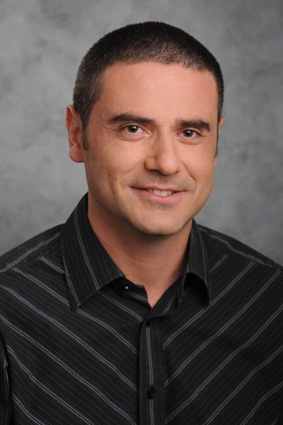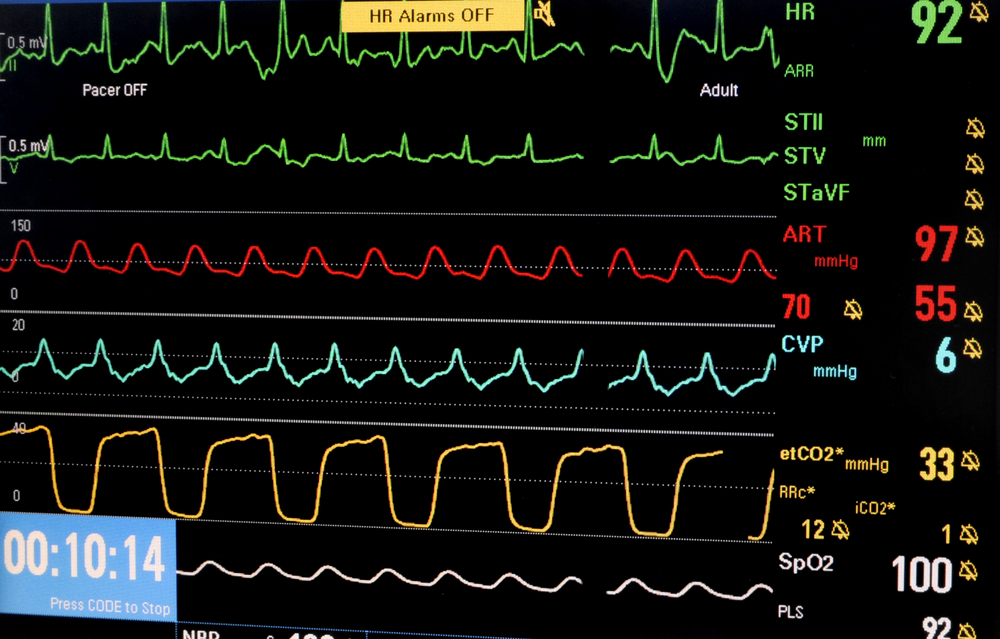Our bodies are in constant motion – not only on the outside but within. Our hearts beat, our chests rise and fall with each breath, the composition of our blood changes as we take in alcohol or sugar. Each motion, great and small, generates vibrations on the molecular level.
Two scientists – Zeev Zalevsky, professor of electro-optics at Bar-Ilan University, and Javier Garcia-Monreal, professor of physics and optics at the University of Valencia in Spain – have been collaborating for a dozen years on developing ways to measure the tiny, “nanometric” vibrations the body emits.
The result of their decade-long research is a revolutionary way to monitor patients’ vital signs without any physical contact – no more intrusive cables, wires, tubes or IVs.
In 2015, Zalevsky and Garcia-Monreal formed a company, ContinUse Biometrics, to commercialize their work and bring it to consumers and medical professionals.

Asher Polani, who previously headed up Israeli software developer Finjan, came on board as CEO. The company has since raised money from computer manufacturer Lenovo, security specialist Tyco and Israeli venture capital firm Olive Tree Ventures.
ContinUse Biometrics’ product consists of a laser and an extremely precise camera that can “read” the reflected light in a room and extract from the changing patterns the specific nano-vibrations coming from the patient.
The camera-laser sensor combination can monitor heartbeat and blood pressure, respiration rate and lung sounds, muscle activity and even blood glucose levels. Proprietary software algorithms analyze the data. While the hardware needs to be in the same room as the patient, the monitoring device can be anywhere, making the ContinUse Biometrics sensor ideal for telemedicine.
Indeed, the company’s main commercialization goal is to set up a monitoring system for a patient at home with a feed going directly to the doctor, clinic or HMO.
ContinUse Biometrics’ sensor can be used with bed-bound seniors at home as well as infants who need close monitoring. Of course, the same kind of monitoring is valuable in a hospital as well.
ContinUse Biometrics is addressing what Lydia Katz, the company’s marketing manager, calls the biggest challenge in digital health.
“It’s not the amount of information generated,” she tells ISRAEL21c. “It’s the need to analyze that information quickly and provide some alerting so that care providers can act – and act fast.”
ContinUse Biometrics can save the healthcare system money, too.
“Someone suffering from congestive heart failure or diabetes needs to be monitored regularly,” Katz explains. “There’s no good solution today to do that from home – it’s either very intrusive, which doesn’t encourage the patient to be compliant, or it’s not convenient or comfortable. The result is the patient goes to the physician to be monitored, which is costly and time-consuming for everyone. We make it effortless to be monitored.”
Thanks to the sensor’s low manufacturing costs, and through the use of a mobile phone – widely available across the globe – ContinUse could enable developing countries to deliver basic healthcare to residents and give patients living in rural areas better access to health services.
The technology is sophisticated enough to distinguish between patients if there is more than one person in a room. “The same way that a fingerprint is unique, a heart signature is also unique,” Katz says.
Coming to market end of 2017
Perhaps the most powerful example of ContinUse Biometrics’ non-intrusive nature is that it can check your blood without any need for an actual sample.
Katz envisions at some point in the future the technology being built into a car to assess a driver’s “bio-competence, whether he or she is in a fit state to drive, or to handle sensitive operations.” If your blood alcohol level is above a certain level, the car won’t start up.
Sleep labs are another area where contact-less monitoring is an advantage. No longer will patients be forced to snooze wired up to a machine.
“Our goal is to piggyback popular consumer electronic devices in all environments – homes, offices or cars – to enable continuous information stream to our health cloud for AI analytics & trend analysis, making remote medical care available and affordable to all,” says Katz.
ContinUse Biometrics has contact-less competition, but Katz says other companies “can’t authenticate users, measure blood pressure or look at glucose and alcohol levels. That’s specific to us.”
The company now has 40 people on staff, mostly in Tel Aviv. You can’t buy a ContinUse product yet – that’s not coming until the end of 2017. And it won’t cover every possible kind of monitoring from the get-go; Katz says the company will be announcing in which areas it will be focusing initially in the next month or two. Certain specializations will also require FDA and EU approval.
In the coming years, Katz expects that ContinUse Biometrics will partner with major players in the consumer electronics field – laptop and smartphone makers as well as manufacturers of devices used for birth and baby monitoring, for example.
Baby monitors seemed state-of-the art when they first came out. Contact-less remote monitoring is now about to take its first tentative steps into the future.
For more information, click here.

















